🌿 What is Thuthi Root Powder?
Thuthi Root Powder is derived from the dried roots of the Thuthi plant (Abutilon indicum), a revered medicinal herb in Siddha, Ayurveda, and Tamil folk traditions. Known as Thuthi Ver in Tamil, this herb is often used for its potent anti-inflammatory, analgesic, and detoxifying properties. Traditionally valued for treating piles, wounds, respiratory issues, and urinary tract infections, Thuthi root has been employed in both internal decoctions and external poultices. Its deep earthy energy helps clear internal heat and supports tissue healing, making it an important herb in holistic detox and pain relief formulations.
🌱 Description of the Thuthi Plant
- Botanical Name: Abutilon indicum
- Family: Malvaceae
- Plant Type: Small shrub or subshrub
- Stem: Velvety, green to pale brown, branched
- Leaves: Heart-shaped, softly hairy with serrated edges
- Flowers: Yellow, bell-shaped with five petals
- Roots: Slender, fibrous to slightly woody, aromatic when crushed
- Odor: Earthy and mildly bitter scent when dried
🌍 Habitat of Thuthi Plant
Thuthi grows abundantly in tropical and subtropical regions, particularly across Tamil Nadu, Kerala, and other parts of South and Southeast Asia. It flourishes in dry or semi-arid soils, wastelands, roadsides, and farmlands. The roots are typically harvested from mature plants after the flowering season, washed thoroughly, then shade-dried to preserve their medicinal potency.
🌟 Medicinal Properties of Thuthi Root Powder
Thuthi Root is traditionally used to address a wide range of ailments:
- Anti-inflammatory: Reduces swelling and soothes inflamed tissues
- Analgesic: Eases body aches, joint pain, and muscular discomfort
- Liver Support: Aids in detoxifying the liver and clearing heat
- Wound Healer: Used topically for boils, abscesses, and skin ulcers
- Urinary Tonic: Helps flush out toxins through urine; eases burning micturition
- Respiratory Relief: Used in decoctions to treat coughs and bronchial congestion
- Hemorrhoid Remedy: Effective in external application and internal decoctions for piles
🧪 Active Compounds in Thuthi Root
- Flavonoids: Exhibit anti-inflammatory and antioxidant properties
- Alkaloids: Contribute to pain-relief and healing mechanisms
- Mucilage: Offers demulcent effects, soothing to mucous membranes
- Triterpenoids: Known for anti-inflammatory and antimicrobial effects
- Polyphenols: Aid in detoxification and tissue repair
🍵 Usage and Dosage
⚠️ Use under the guidance of a qualified Siddha or Ayurvedic practitioner.
For Piles and Constipation (Internal Use):
- Mix ¼ to ½ tsp of Thuthi Root Powder with warm water or buttermilk.
- Consume once daily on an empty stomach for 5–7 days.
For Wounds, Boils & Skin Issues (External Paste):
- Mix powder with turmeric and hot water or castor oil.
- Apply over affected area; cover with a clean cloth.
- Use daily until healing is observed.
For Urinary Infections (Decoction):
- Boil 1 tsp powder in 200 ml water until reduced to half.
- Strain and drink lukewarm once a day for 3–5 days.
For Respiratory Relief:
- Mix with vasambu (Acorus calamus) and honey.
- Take a pinch 2–3 times daily for soothing the throat and easing cough.
⚠️ Precautions
- Avoid during pregnancy unless prescribed by a physician.
- Excess internal use may cause loose stools due to its laxative effect.
- Not suitable for long-term use without supervision.
- Always use roots from trusted sources—wildcrafted plants near polluted areas may contain toxins.
📦 Storage
- Store in an airtight glass or metal container.
- Keep away from moisture, heat, and light.
- Shelf life: 12 months when stored properly.
🌿 Organic and Ethical Considerations
- Prefer organically grown or responsibly wildcrafted Thuthi plants.
- Harvest mature roots post-flowering for maximum potency.
- Dry under shade using traditional techniques to retain bioactive compounds.
- Support local herbal farmers and ethical manufacturers who practice sustainable cultivation and fair-trade collection methods.
Tamil: துத்தி வேர் (Thuthi Ver)
Sanskrit: अतिबला (Atibala)
Hindi: कंगाही / अतिबला (Kangahi / Atibala)
Malayalam: അതിബല (Athibala)
Telugu: తుత్తి మూలిక (Thutti Moolika)
Kannada: ದೇಸಿ ತುಟ್ಟಿ (Desi Thutti)
Marathi: अतिबळा (Atibala)
Bengali: অতিবলা (Atibala)
Gujarati: અટિબલા (Atibala)
Urdu: اطی بَلا (Atibala)
English: Indian Mallow Root
Botanical Name: Abutilon indicum
Family: Malvaceae
🍃 Nutritional Facts, Info & Dosage – Thuthi Root Powder
Although not typically consumed for nutritional value like food-grade herbs, Thuthi Root is rich in medicinal phytochemicals that contribute to its healing properties. Its traditional usage in Siddha and Ayurveda focuses on balancing the vata and pitta doshas, cooling the body, and cleansing internal channels.
🔬 Phytochemical Composition (Medicinal Constituents)
- Flavonoids – Antioxidant, anti-inflammatory
- Alkaloids – Pain-relieving and antimicrobial
- Mucilage – Demulcent and cooling action
- Triterpenoids – Supports liver and skin health
- Saponins – Detoxifying, supports urinary system
- Phenolic compounds – Assist tissue repair and protect against oxidative stress
🧂 General Info (Per 1 tsp – approx. 2 grams of root powder)
- Calories: Negligible
- Fats: 0 g
- Protein: Trace amounts
- Carbohydrates: < 0.5 g (mostly fiber and polysaccharides)
- Fiber: Mild mucilaginous fiber content
- Minerals: Small amounts of calcium, iron, and potassium (variable depending on soil quality)
🔎 Note: These values are approximate and may vary based on sourcing, drying, and grinding process. Thuthi Root is used more for its pharmacological activity than nutritional value.
🌿 How To Consume, Use & Store – Thuthi Root Powder
Below are practical ways to prepare and use Thuthi Root Powder for various applications, along with storage recommendations to preserve its potency.
1. Internal Consumption
Ingredients:
- ¼ – ½ tsp Thuthi Root Powder
- Warm water or buttermilk (100 – 150 ml)
Method:
- Mix the powder into warm water or buttermilk until fully dissolved.
- Stir well and sip slowly on an empty stomach.
Benefits:
- Supports mild laxative action (helpful in mild constipation or piles).
- Gently detoxifies the liver and blood.
- Decoction (Urinary & Hepatic Health)
- Ingredients:
- 1 tsp Thuthi Root Powder
- 200 ml water
Method:
- In a small saucepan, bring 200 ml water to a boil.
- Add Thuthi Root Powder, reduce flame to low, and simmer until the liquid reduces to about 100 ml.
- Strain through a fine mesh or muslin cloth.
- Allow to cool until lukewarm.
- Drink slowly.
- Frequency: Once daily (preferably mid-morning).
Benefits:
- Flushes out toxins via urine.
- Helps alleviate burning urination or mild urinary tract discomfort.
- Gently supports liver function.
Herbal Tea Blend (Respiratory Soothing)
Ingredients:
- ½ tsp Thuthi Root Powder
- ¼ tsp Vasambu (Acorus calamus) powder (optional)
- 1 cup (200 ml) hot water
- Honey (to taste)
Method:
- Place Thuthi and Vasambu powders into a teacup.
- Pour hot (not boiling) water over powders; cover and steep 5–7 minutes.
- Strain into another cup.
- Add honey if desired.
- Stir and sip slowly, inhaling the steam as you drink.
- Frequency: 2 – 3 times daily when experiencing cough, throat irritation, or mild bronchial congestion.
Benefits:
- Soothes throat mucosa (mucilage content).
- Reduces cough intensity; eases chest congestion.
Kids’ Dosage: Use ¼ of the adult dose, mixed into warm water or honey, under parental supervision. Do not exceed 3 days without practitioner’s advice.
2. External Application
Wound & Boil Poultice
- Ingredients:
- 1 tsp Thuthi Root Powder
- Warm water or fresh castor oil (enough to make a paste)
- Pinch of turmeric (optional)
Method:
- In a small bowl, combine powder (and turmeric if using).
- Add warm water or castor oil gradually to form a thick paste.
- Cleanse the affected area with mild antiseptic (e.g., clean saline).
- Apply the paste evenly over the wound, boil, or infected area.
- Cover with a sterile gauze or cotton cloth.
- Leave in place for 30 minutes to 1 hour.
- Rinse gently with clean water and pat dry.
- Frequency: Once or twice daily until healing is noted (typically 5–7 days).
Benefits:
- Dries up pus and reduces inflammation.
- Speeds wound contraction and healing due to antimicrobial action.
Topical Paste for Hemorrhoids (Piles)
- Ingredients:
- 1 tsp Thuthi Root Powder
- Fresh coconut oil or sesame oil (2 tbsp)
Method:
- Gently heat oil till warm (do not overheat).
- Mix Thuthi powder into warm oil to create a smooth paste.
- After cleansing the anal area with warm water, gently apply the paste to external piles.
- Leave for 20 – 30 minutes; then rinse with lukewarm water and pat dry.
- Frequency: Once daily (preferably at bedtime).
Benefits:
- Reduces swelling and soothes pain.
- Promotes gradual shrinkage of hemorrhoidal tissues.
3. Storage Tips
Container:
- Transfer Thuthi Root Powder into a clean, dry, airtight glass jar or metal tin with a tight-fitting lid.
- Avoid plastic bags or containers that can trap moisture.
Location:
- Store in a cool, dark place, away from direct sunlight, heat sources (stove, radiator), and humidity (avoid storing above stovetops or near sinks).
- A kitchen cabinet or pantry shelf away from moisture is ideal.
Shelf Life:
- Properly stored powder can retain potency for 9 – 12 months.
- After this period, medicinal strength may decline; consider replenishing your stock.
Avoid Contamination:
- Always use a clean, dry spoon to scoop powder.
- Close the lid immediately after use to prevent air and moisture exposure.
- Check periodically for signs of moisture, clumping, or off-smell—discard if any mold or rancidity appears.
Batch Labeling:
- Label the container with the harvest or purchase date to track freshness.
- If you keep multiple herb powders, mark each clearly to avoid confusion.
4. Additional Tips & Notes
Purity Check:
- Ensure the powder is made from mature, shade-dried Thuthi roots, free of sand or debris.
- Avoid powders mixed with fillers or unknown additives.
Combining with Other Herbs:
- Thuthi pairs well with turmeric, vasambu (Acorus calamus), neem, and triphala for synergistic detox and anti-inflammatory formulas.
- When combining, adjust dosages so the total powdered mixture does not exceed 1 tsp per dose for internal use.
Timing:
- For internal detox or piles relief, best results are often seen when consumed early morning on an empty stomach.
- Topical applications can be done any time but leave overnight for hemorrhoid paste if convenient.
❗ Important: Always consult a qualified Siddha/Ayurvedic practitioner before starting any new herbal regimen, especially if you are pregnant, nursing, on medications, or have chronic health conditions.


 SCIENTIFICALLY TESTED & COMPLETELY SAFE. SUITABLE FOR VEGETARIANS. NOT TESTED ON ANIMALS/NO ANIMAL INGREDIENTS. NO KNOWN SIDE EFFECTS. COMPLETELY SAFE. NON-TOXIC. FREE FROM HEAVY METALS
SCIENTIFICALLY TESTED & COMPLETELY SAFE. SUITABLE FOR VEGETARIANS. NOT TESTED ON ANIMALS/NO ANIMAL INGREDIENTS. NO KNOWN SIDE EFFECTS. COMPLETELY SAFE. NON-TOXIC. FREE FROM HEAVY METALS 

 The Food and Drug Administration has not evaluated these Statements. This product is classified as an “Herbal Food Supplement” and is not designed to diagnose, treat, cure, or prevent any disease. If you have any underlying health conditions, please consult a healthcare professional before using this product
The Food and Drug Administration has not evaluated these Statements. This product is classified as an “Herbal Food Supplement” and is not designed to diagnose, treat, cure, or prevent any disease. If you have any underlying health conditions, please consult a healthcare professional before using this product 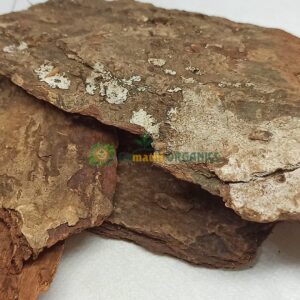
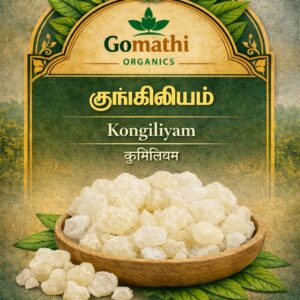
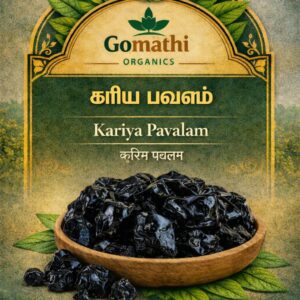
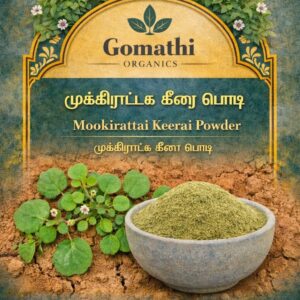
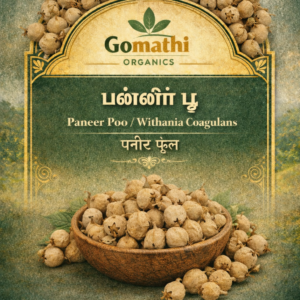
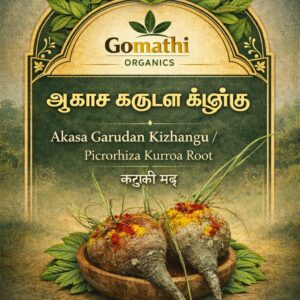
Reviews
There are no reviews yet.